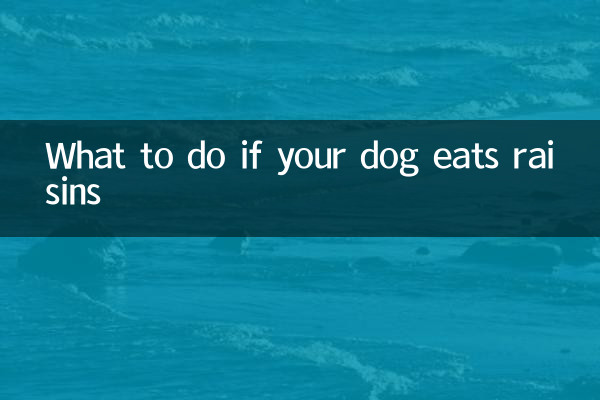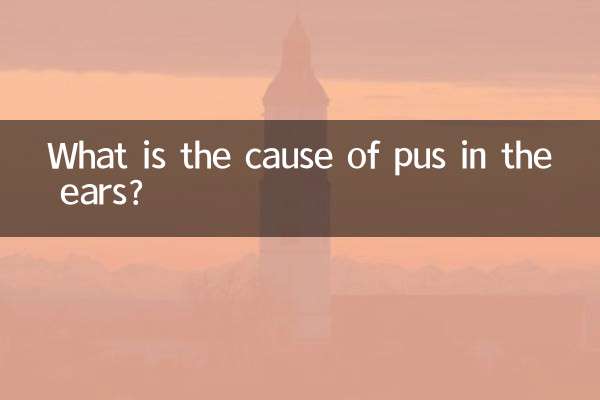What to do if your dog eats raisins
In the past 10 days, among the hot topics about pet health on the Internet, "dogs eating raisins by mistake" has become one of the focuses. Many pet owners are concerned because raisins are potentially harmful to their dogs' health. This article will introduce in detail what to do after a dog eats raisins and provide relevant data support.
1. The harm of raisins to dogs

Grapes and raisins contain ingredients that are toxic to dogs and may cause acute kidney failure. The following is data on the dangers of raisins to dogs:
| Hazard type | Symptoms | Appearance time |
|---|---|---|
| Digestive system problems | Vomiting, diarrhea | Within 2-6 hours |
| kidney damage | Decreased urine output, anuria | Within 24-48 hours |
| systemic symptoms | Loss of appetite and weakness | Within 12-24 hours |
2. Emergency steps
If you find that your dog has eaten raisins, please take the following measures immediately:
1.Confirm intake: Try to determine how many raisins the dog has eaten, which is important for subsequent treatment.
2.Contact your veterinarian: Call your veterinarian or pet emergency center immediately to discuss the situation.
3.Do not induce vomiting on your own: Do not induce vomiting in your dog unless specifically directed by your veterinarian.
4.Prepare for medical treatment: Collect raisin packages or leftover samples in preparation for taking your dog to the veterinary clinic.
3. Treatment plan data
Depending on your dog's weight and intake, your veterinarian may prescribe the following treatment options:
| Intake (per kilogram of body weight) | treatment plan | Hospitalization observation time |
|---|---|---|
| Less than 0.1g | Watch for symptoms, treatment may not be needed | 24 hours |
| 0.1-0.3g | Vomiting, activated charcoal treatment | 48 hours |
| More than 0.3 grams | Intravenous fluids, blood tests | More than 72 hours |
4. Preventive measures
To prevent your dog from accidentally eating raisins, it is recommended to take the following precautions:
1.safe storage: Keep raisins and other human foods out of your dog’s reach.
2.educate family: Let all family members know which foods are harmful to dogs.
3.Choose safe snacks: Prepare specialized dog treats for your dog instead of human food.
4.Trash can management: Use a lidded trash can to prevent your dog from digging for food scraps.
5. Common Misunderstandings
There are some common misunderstandings about dogs and raisins that need to be clarified:
| Misunderstanding | fact |
|---|---|
| Harmless in small amounts | Even small amounts can cause harm |
| Only raisins are harmful | Fresh grapes are also poisonous |
| Large dogs can eat it | Dogs of all sizes are affected |
| safe when cooked | Cooking cannot remove poison |
6. Rehabilitation care
If your dog has been treated for raisin poisoning, you need to pay attention to the following during recovery:
1.diet modification: Provide an easy-to-digest special diet as recommended by your veterinarian.
2.Hydration: Make sure your dog has enough clean drinking water.
3.activity restrictions: Avoid strenuous exercise during recovery.
4.Regular review: Perform kidney function tests as directed by your veterinarian.
7. Summary
Raisins pose a serious threat to dogs’ health, and pet owners must be vigilant. In the event of accidental ingestion, seek professional help immediately. Prevention is better than cure, and by taking appropriate precautions, your dog's risk of exposure to raisins can be greatly reduced. Remember, it’s better to err on the side of caution than to take any chances when it comes to your pet’s health.
If you have any questions about your pet's health, it is recommended to consult a professional veterinarian for personalized advice. Vigilance and prompt action are key to protecting the health of our furry friends.

check the details

check the details